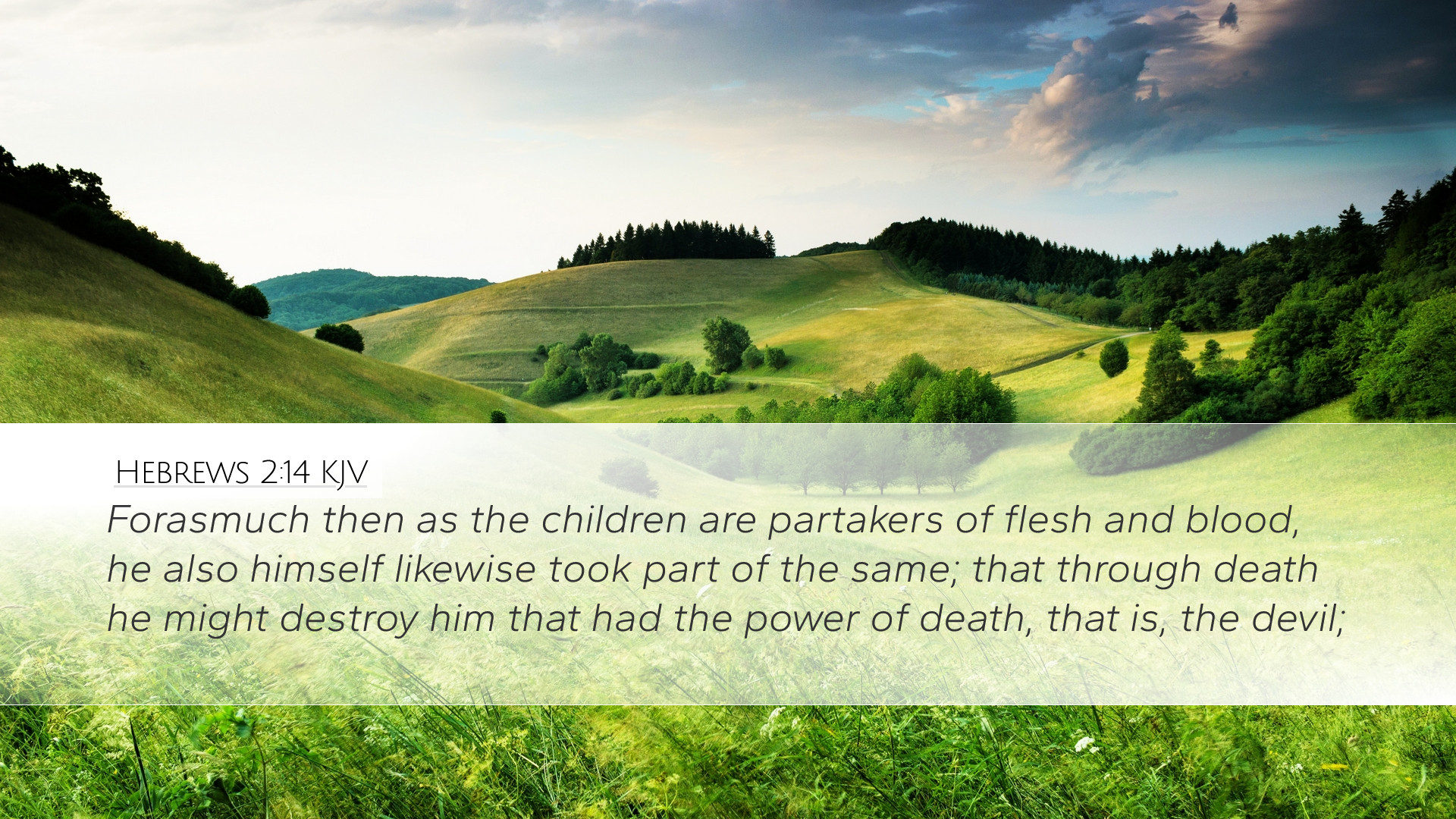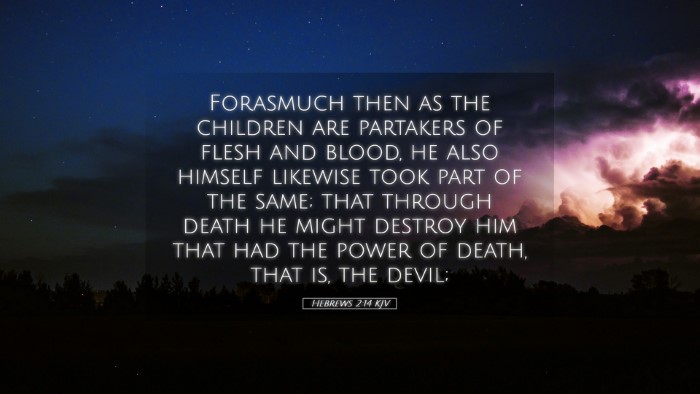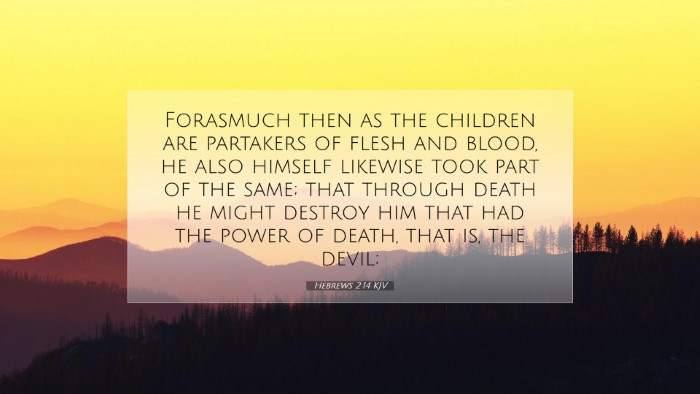Old Testament
Genesis Exodus Leviticus Numbers Deuteronomy Joshua Judges Ruth 1 Samuel 2 Samuel 1 Kings 2 Kings 1 Chronicles 2 Chronicles Ezra Nehemiah Esther Job Psalms Proverbs Ecclesiastes Song of Solomon Isaiah Jeremiah Lamentations Ezekiel Daniel Hosea Joel Amos Obadiah Jonah Micah Nahum Habakkuk Zephaniah Haggai Zechariah MalachiHebrews 2:14
Hebrews 2:14 KJV
Forasmuch then as the children are partakers of flesh and blood, he also himself likewise took part of the same; that through death he might destroy him that had the power of death, that is, the devil;
Hebrews 2:14 Bible Commentary
Commentary on Hebrews 2:14
Verse: "Inasmuch then as the children have partaken of flesh and blood, He Himself likewise shared in the same, that through death He might destroy him who had the power of death, that is, the devil."
Introduction
This verse from Hebrews highlights the profound mystery of the Incarnation, where Jesus took on human form to secure victory over sin and death. The text explores the implications of Christ’s humanity, His sacrificial death, and His triumph over the devil.
Exegesis of the Text
The author of Hebrews presents a powerful theological statement regarding the nature of Christ's mission. Matthew Henry notes that the phrase "the children" refers to believers, indicating God’s purposeful connection with humanity. This alignment sets the stage for Christ to share in our humanity not as a distant observer but as a participant in our suffering and death.
The Humanity of Christ
Albert Barnes emphasizes the necessity of Christ's incarnation to redeem humanity. He argues that Jesus had to be made like us in all things (Hebrews 2:17), understanding our weaknesses and trials. This identification with our condition is essential for our salvation. It underscores God's deep commitment to humanity, bridging the gap caused by sin.
- Identification with Humanity: Christ took on flesh and blood, highlighting His complete identification with the human experience.
- Empathy and Compassion: His shared experiences enable Him to empathize with our suffering, making Him a perfect intercessor.
The Purpose of His Death
Adam Clarke provides an insightful commentary on the goal of Christ's death. He articulates that through His death, Jesus would "destroy" the power of death itself, which is attributed to the devil. This conflict embodies the spiritual battle for souls. The power of death refers not only to the physical demise but also to the spiritual bondage that holds humanity captive.
- Destruction of the Devil's Power: The death and resurrection of Christ serve as the climactic event in defeating Satan's hold on humanity.
- Victor Over Sin: By His death, Jesus opened the path to redemption, removing the curse of sin and offering eternal life.
Theological Implications
This verse insists on the duality of Christ’s nature—fully God and fully man—an essential doctrine in Christian theology. Henry affirms that without the reality of Christ sharing in our humanity, His sacrifice would lack the power to effect true redemption.
- Salvation's Assurance: Believers find confidence in their salvation, knowing that Christ was tempted and suffered as we do.
- Spiritual Warfare: This passage reminds us of the ongoing battle against the forces of darkness and the assurance of Christ's ultimate victory.
Practical Applications
The profound truths encapsulated in Hebrews 2:14 have significant implications for pastoral care, preaching, and personal faith. Acknowledging Christ’s vulnerability allows believers to confront their struggles and find solace in Jesus' empathy.
- Encouragement for the Afflicted: Pastors can draw upon this truth to encourage those facing trials, illustrating that Jesus understands their pain.
- Assurance of Victory: Christians can live with the hope that, despite the struggles with sin and death, Christ's victory empowers them.
Conclusion
Hebrews 2:14 serves as a reminder of the depth of the Incarnation and the extent of Christ’s sacrifice. Through His identification with humanity, He dismantles the power of death and offers a way to eternal life. This passage not only enriches theological understanding but also provides practical comfort and encouragement for believers traversing a fallen world.


